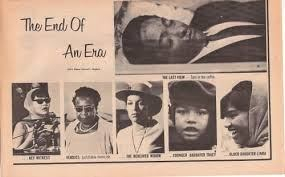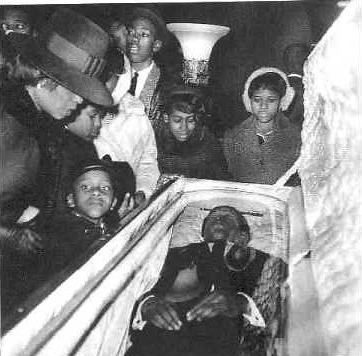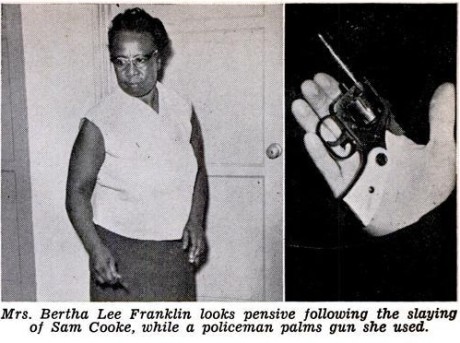The attractive brunette at the bar of Martoni’s was all of twenty-two years old, but she looked older. Well dressed, of Asian and Caucasian decent, her conspicuous maturity gave her an air of sophistication even as it threatened her from a distance.
The brunette’s name was Elisa Boyer. She was a prostitute.
Martoni’s was a nice restaurant in San Fernando Valley. Not necessarily stuffy–as was still the trend in early 60s fine dining–but nice. Lot’s of music industry people hung out there.
She sat with three men. They talked discreetly. She knew how to handle herself.
On the contrary, the man that had walked into Martoni’s shortly before Elisa and her companions arrived, was anything but discreet. Not that he was loud–loud as in the vernacular of the early 60s; vulgarly conspicuous, flamboyant. He wasn’t. He was exquisitely tasteful. Perhaps too much so. Some said he was too handsome.
Elegantly slim. Cool. Fluid.
Everything was easy with him. His laugh. His smile. His razor sharp wit. The way his perfectly creased slacks brushed against his cashmere socks. The fine leather of his shoes.
His voice…
Yes, more than anything else, his voice.
He was the quintessential interpreter of soul–then and now–with 26 top 40 hits. Some of those hits, e.g., You Send Me, Wonderful World, Chain Gang, Cupid, Bring it on Home to Me and A Change is Gonna Come would become iconic. What’s more, he owned the copywrites and masters of his songs. He even owned his own label, a precious, rare thing in those days for any recording artist. Almost unheard of for a Black artist.
Though married, he was also a notorious letch about town, fathering three children by three different women by the time he was twenty-two. His friend, record executive Bumps Blackwell famously said of him, “He would walk past a good girl to get to a whore.”
Naturally, when he walked into Martoni’s that night with record producer Al Schmitt and Schmitt’s wife Joan, he owned the room. It was like that wherever he went. And it was all too predictable that Elisa Boyer would gravitate toward him. Everybody else did.
Soon, he had ditched the Schmitts and the two were in his red Ferrari speeding toward PJ’s Lounge, another industry hang out only minutes away in Los Angeles. It was December 11, 1964. The last night of Sam Cooke’s life.

There are photographs of Sam Cooke lying in repose. It is December 18, 1964, Chicago. Over 200,000 people have come to view him. He is in a glass covered casket. The photos are in black and white but you can still see the lump and bruising on his forehead that stage makeup failed to cover.
What you can’t see is that his nose was misshapen and obviously broken. And just by looking at the photos, there’s no way to tell whether or not he was internally decapitated, i.e., the ligaments that attach and stabilize the skull to the neck are severed.

You can’t tell that…Nor can I…But his friend–the late, great r&b singer Etta James–said she could. She was there. At his funeral. She viewed his body early, with the family, before most people arrived. She wrote about it in Rage to Survive: The Etta James Story.
But, you can see, in one photograph, that something is clearly wrong with his hands. That’s apparent. Etta James said that Cooke’s hands were crushed. The above photograph is consistent with her claim. And that’s strange, considering the person who gave him such a vicious beating was a fifty-five-year-old woman by the name of Bertha Franklin.
Plus, there is a photograph of Ms. Franklin taken by the police shortly after she fatally shot him in the chest. Unlike Sam Cooke, she looks only a little worse for wear considering the life and death struggle that she had just engaged in. To be fair, there are what appear to be little splotches of blood on her blouse and a nasty bruise on the inside the bend of her left arm that are consistent with her version of events. 
Franklin claimed that she did not know who Sam Cooke was when he checked into the Hacienda, a flea bag/brothel motel where she clerked. She said Cooke was a little disheveled and had obviously been drinking but that he complied when she told him that he and his companion would have to register as husband and wife per motel regulations. He signed the registry Mr. & Mrs. Sam Cooke. Franklin told police that the young lady who was with Cooke didn’t appear to be in distress.
A short time later, according to Franklin, the same young woman was at the office door, frantically knocking, begging to be let in. Franklin peered out the window but didn’t answer. The knocking subsided.
Then Franklin said she heard the deep rumble of a car engine and the screech of brakes followed by more banging on the door and yelling. This time it was Sam Cooke who was causing the commotion. Franklin, who was on the phone with the motel’s owner, told her she was afraid that he was going to beat the door down.
And that’s just what he did. Or, rather, he kicked it in. At least, that’s what they said.
“Where’s the girl?” Franklin said Cooke yelled. “Where’s my money?”
Except for a sports coat and one shoe, he was naked. Then, according to Bertha Franklin, he lunged at her, grabbing her arms.
“We tussled,” Franklin told the police. She got away from him. “I ran for my gun.”
Meanwhile, the motel owner, Evelyn Carr was listening to the struggle on her phone. When she heard gunshots she hung up and called the police. Unbeknownst to her, Elisa Boyer had already called them, claiming that she’d been kidnapped and sexually assaulted.
“Lady, you shot me!” were Sam Cooke’s last words, according to Bertha Franklin. Then, she said, he lunged for her again. He missed. She grabbed a broom and struck him over the head with it.
He straightened just a bit, looked up and then slid down a wall. That was it. He died.
During an inquest it was determined that Bertha Franklin had acted in self defense. Elisa Boyer testified that she asked Cooke to take her home after the two left PJ’s but he took her to the Hacienda Motel instead. She said Cooke forced her into the motel room against her will, that he pushed her on the bed and began tearing off her clothes. She said she knew he was going to rape her–maybe worse.
Inexplicably, Cooke interrupted the assault and went to the restroom. According to Boyer, that’s when she escaped the motel room, taking his clothes with her. No mention was made of the huge money roll that Cooke was seen flashing at Martoni’s and PJ’s. It was never recovered.
The attorney who represented Sam Cooke’s interest barely spoke a word at his clients inquest. Witnesses said that he seemed timid and afraid of the judge. It has also been reported that Cooke’s business manager Allen Klein hired the guy. Technically that is true. But Klein and that attorney, his attorney, Martin J. Machat, did business together. It was a lawyer client relationship–yes–no question. And, as such, they engaged in business matters. Of course. Generally speaking, Allen Klein’s clients were Marty Machat’s clients.
But it was more than that.
Machat was Allen Klein’s fixer. His legal sledgehammer. He was a very shrewd, extremely capable lawyer who counted boxer Sugar Ray Robinson and recording artists The Coasters, The Platters, The Drifters and Clyde McPhatter as his clients.
Even so, he was a light weight compared to his client Allen Klein.
Business manager Allen Klein was friends with the powerful record and promotional impresario Don Kirshner. And–yes–he had famous celebrity clients, too, but his most valued associations were with the behind the scene movers and shakers of the recording industry.
For instance, he was close to client and record producer Jimmy Bowen. And Jimmy Bowen was close to Frank Sinatra. Bowen produced some of Sinatra’s most successful records. He was also the trusted producer for Frank’s daughter, Nancy Sinatra.
And though Sinatra was certainly a celebrity (he was, in fact, “the celebrity”), he was more than that. He had friends in very high places.
In any event, perhaps, the greatest testament to Allen Klein’s power was his total subjugation of Roulette Records founder and CEO, Morris Levy.
As a boyhood friend of Genovese crime family enforcer, Vincent “Chin” Gigante, Levy operated with near impunity, routinely and famously robbing his artists of their royalties. It is said that the character “Hesh” of HBO’s famed series The Sopranos is based on him. Yet when Levy was approached by Klein, who was acting at the behest of his clients, rockabilly pioneers Buddy Knox and Jimmy Bowen, the Genovese front man couldn’t cough up the missing royalties fast enough.
Sam Cooke was introduced to Allen Klein by his friend Jocko Henderson. As “the Dick Clark of r&b in New York City”, Henderson became a power broker by booking and promoting concerts for Harlem’s famous Apollo Theater. The Apollo was the gateway to the big time for r&b artists. In addition to his television program, his radio program Jaoko’s Rocketship Show was broadcast on several major East Coast stations. He and Klein formed a promotion partnership for which they booked concerts for venues in Philadelphia.
Henderson told Cooke about what Klein had done for Buddy Knox and Jimmy Bowen. Cooke was impressed. For years he had been trying to get a deeper look at his contractual obligations per RCA Victor, as his calculations of his label’s cut into his fortune differed from theirs. Yet, RCA Victor wouldn’t open the books. So he hired Allen Klien as his business manager. Klien used Machat, to legally threaten RCA Victor into exposing those books to his forensic lens.
And he found errors.
So many errors that RCA Victor renegotiated Cooke’s contract. And it was a rich contract, not just rich for an African American artist rich, but white artist rich–truly, a ground breaking feat in 1964 America.
Klein wasn’t an attorney. He was an accountant, though not a certified one. He didn’t bother to show up for his CPA’s exam. He was, however, a mathematical genius.
Only a few months after Klein’s hire, Sam Cooke was shot dead at the Hacienda Motel on a hookers stroll in Los Angeles. He was thirty three.
To be continued…

Excellent Pam. If Allen Klein is involved you have to look at every angle. Something just wasn’t right about his death.
LikeLiked by 1 person
Thank you. Yes. It doesn’t pass the smell test. Sad. Thanks for reading.
LikeLiked by 1 person
By coincidence, I was listening to ‘You Send Me’ and ‘Change Is Gonna Come’ yesterday morning.
(Though I actually prefer the Otis Redding version of ‘Change Is Gonna Come’.)
Thanks for all this fascinating background detail, Pam. You are back, on great form!
Looking forward to the next part.
Best wishes, Pete.
LikeLiked by 1 person
Thank you Pete. I usually err on the side of Otis Redding myself. Where Cooke had an effortless voice, Redding packed a lot of punch. Thanks for stopping by.
–Pam
LikeLiked by 1 person
Klein was a sleaze bucket of the highest order. A few months ago I watched a documentary on Cooke (Netflix) called Remastered: The Two Killings of Sam Cooke. It’s decent, best when focusing on his recording career, though it also focuses on weak conspiracy theories that mysterious unproven other forces were involved, political and otherwise. The film also plays down his womanizing. Cooke had a fabulous voice smooth voice, yet he could sing the blues. Looking forward to part 2.
LikeLiked by 2 people
Yes. He’s one of my favorite recording artists. Solomon Burke said he was a decent guy. Yeah, he messed around a lot. Burke said that’s just the way it was, but he said Sam Cooke was never violent. He never slapped women around.
LikeLike
I don’t think I knew this about Sam Cooke’s life. It really is sad and obviously suspicious, his death coming right after the re-negotiation of his contract.
I love how this starts out like a story and draws us in little by little with interesting, suspenseful details. It was like watching a noir detective movie. I, too, look forward to the next part.
Don’t get between people and their *money*, right? Some thing Jimi Hendrix’s manager killed him because Jimi was about to dump him, and Jimi would be worth more to him dead than alive and him fired as a manager. I don’t think this theory has ever been proven, tho…
LikeLiked by 1 person
I appreciate the kind words. I like true crime quite a lot but there are so few really good true crime authors. It’s a sleazy genre, for the most part. IMO. Ha!
I’ve never heard that about Hendrix. There are a lot of conspiracy theories about this stuff. I wonder how many of them are true? My experience tells me that if you have a discerning ear, the buzz on the street leads you to the truth.
Thanks for reading.
LikeLiked by 1 person
Great post 🙂 All the different stories about who played a role in Sam Cooke’s death has a Rashomon quality to it. In other words, everybody tells their side of the story, but neither of them are entirely correct. If you have never saw Rashomon, here is wikipedia’s link to the film below and keep up the great work as always 🙂
https://en.wikipedia.org/wiki/Rashomon
LikeLiked by 1 person
I haven’t seen it. Thank you for the link. That’s very thoughtful.
LikeLiked by 1 person
Interesting info on someone who didn’t need to die that night 😦
LikeLiked by 1 person
Yes. It’s very sad. So many ways it could have been avoided. Or so it seems. Thanks for reading.
LikeLiked by 1 person
You are welcome.
LikeLike
Smashed it Pam. You gotta be doing the scriptwriting for the Sam Cooke story? If the movers and shakers are reading, “get this lady signed up, pronto”. You keep me transfixed with your writing. So professional unlike the scribbling of a mad all thumbs lycan haha.
Never knew the reasons behind Sam Cooke’s death. Don’t know why but I had always thought it was a car crash. Good gosh that Bertha is one tough cookie. When I was reading your words on the possible almost decapitation I’m thinking she must of swung that broom like Babe Ruth? But what’s with the broken hands? Is there more than meets the eye to the story? I’ll be on part two later. Time to cut the grass and gain some brownie points before I jump back on the PC. hehe. Hope you have a great weekend. Mikey
LikeLiked by 1 person
Yes, I know what you mean about the brownie points.
Now about the internal decapitation–there’s no record of this. I searched for Cooke’s autopsy but couldn’t find one. One explanation is that it got lost. Anyway, internal decapitation, that’s what Etta James said. Who knows. Etta James is known to have said some pretty wild things.
Thanks for reading–and the kind words.
LikeLike
BG Ruhle’s book – One More River to Cross: The Redemption of Sam Cooke has the autopsy.
LikeLiked by 1 person
Wow! I had no idea.
LikeLike
Yes. It’s sad. And sordid. I love the talent of Sam Cooke. And he was a good guy in some ways, of course.
He was very instrumental in the civil rights movement.
Thanks for reading. And for the follow.
–Pam
LikeLiked by 1 person
You’re so welcome! I always love to learn something new. Have a great day!
LikeLiked by 1 person
Klein stole the company right out from under Sam
LikeLiked by 1 person
Yes. The music business was very scary back in those days. Mobbed up like crazy.
LikeLike